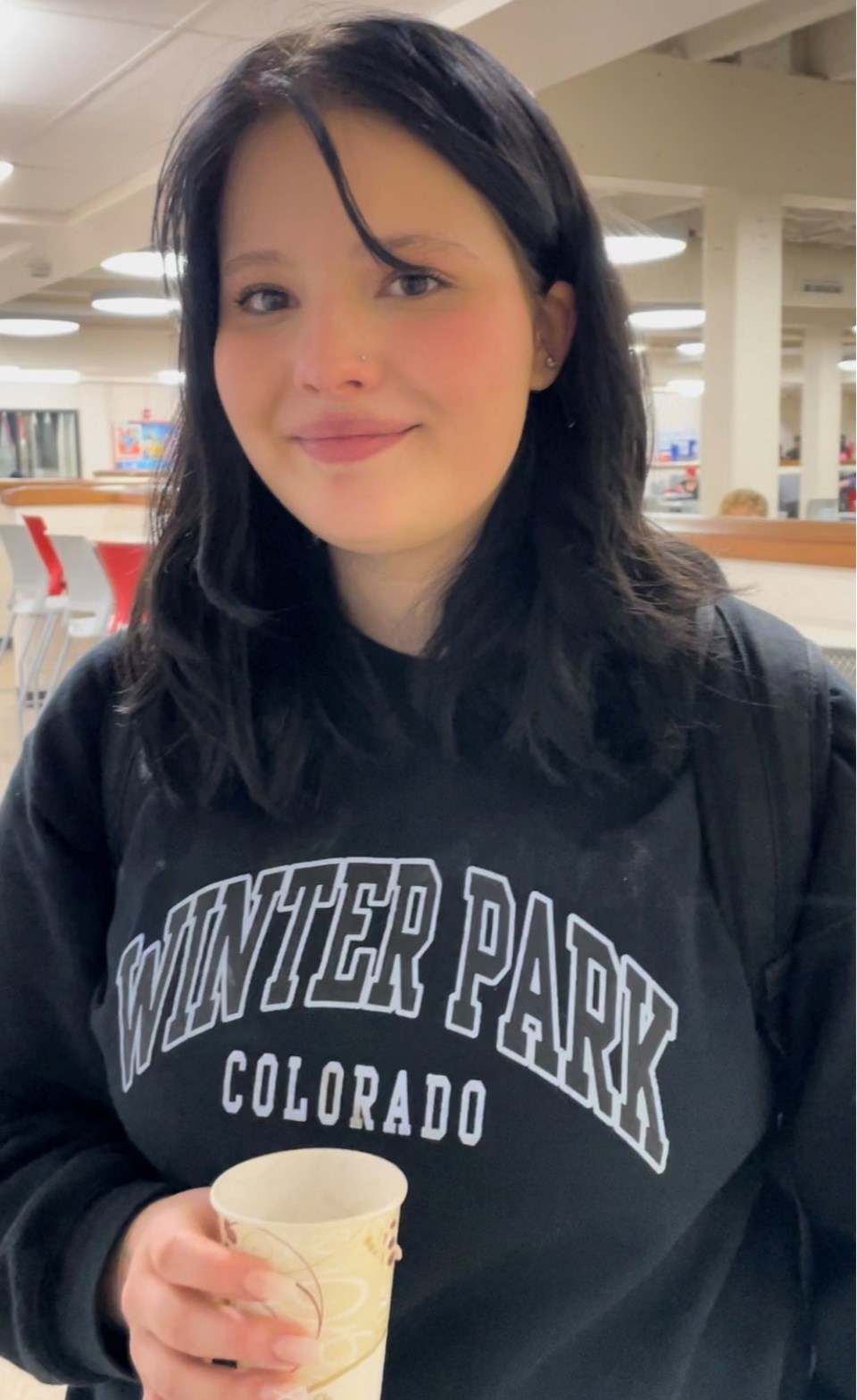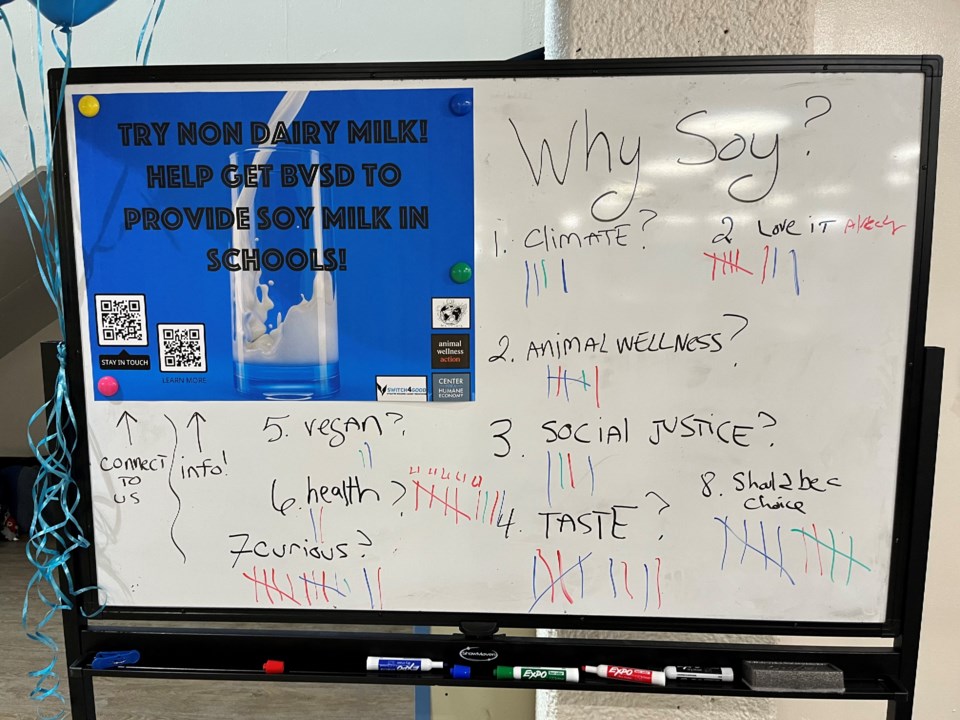A small group of parents and students is advocating for free milk alternatives to be served with lunches in the St. Vrain Valley School District and Boulder Valley School District.
The U.S. Department of Agriculture’s National School Lunch Program requires public schools to offer free milk to students, in order for the schools to receive nutrition assistance program reimbursement.
“I think it’s important to have alternative milks at schools because not everyone is able to drink dairy products,” said Livia Nielsen, a Centaurus High School student who’s advocating for the change. “It’s unfair to students who don’t drink cow milk and hardly costs much to incorporate it into school meals.”
Some schools in the districts offer milk alternatives at cost, which is around $2, and others offer free alternatives with a doctor’s note — but students deserve hassle-free options that don’t cost them money, said Julie Marshall, a Centaurus parent in the Boulder Valley School District.
“We talked this week with Kikkoman soy company that has offices in Colorado, and they said they are able to offer soy milk for free at least at one local high school for the remainder of the year,” Marshall said. “We are excited, but this is one drop in the bucket in an effort that needs to happen on the national level.”
Two decades ago, peer-reviewed studies were released that showed people of color are far more likely to be lactose intolerant, yet in schools across the country, free milk alternatives have yet to be offered. Many students may feel ill after their lunch hours, but not know why, Marshall said.
“I don’t want to be speaking for any person of color — I feel like that part of the campaign has to have authentic voices … but I think we can certainly all promote equity together,” she said.
Marshall and other parents conducted a survey at Centaurus High School after the Superior Costco donated 10 cases of soy milk to the school. Students were free to choose the soy milk or milk, and report why they made their choice.
“Out of about 120 teens who chose soy milk and reported why, a surprisingly large number of kids, 27, who took to the soy milk right away, did so for health reasons,” Marshall said. “They reported being lactose intolerant or a member of their family was; some were allergic to cow’s milk or just got ill drinking dairy and did not know why.”
A smaller number of students said they chose soy milk because dairy waste contributes to higher greenhouse gas emissions and dairy cow male calves are killed at birth, Marshall said.
“Above all though, it's about choice,” she said. “What inspired me most were the kids who shared they don’t drink any milk, or that they do prefer cow’s milk, but believe there ought to be an option for peers at school who shouldn’t have to pay for it.”
In a statement, the Boulder Valley School District’s Food Services department said it encourages plant-based diets, and offers a vegetarian entrée at every lunch.
“We also have water available for all students. Milk is not given to every student, but is one more option that we provide. Plant-based milk is more expensive, and the USDA does not give additional reimbursement to schools for using plant-based milk,” the statement read.
The Leader also reached out to the St. Vrain Valley School District, which advised parents to contact their child’s school and district’s nutrition services office to discuss how the district can support the individual needs of their child.
Marshall is the Colorado director of the Animal Wellness Action and Center for a Humane Economy, whose national offices worked with another nonprofit, Switch4Good, to issue a letter in 2022 to the U.S. Department of Agriculture Secretary Tom Vilsack calling for free milk alternatives in schools. The letter was signed by 31 congress members, including prominent leaders in the Black, Hispanic, Asian and Pacific Islander Caucuses.
The parents and students behind the Colorado milk alternatives campaign plan to ask school boards and superintendents to support choice by sending a letter to the federal department, Marshall said.


